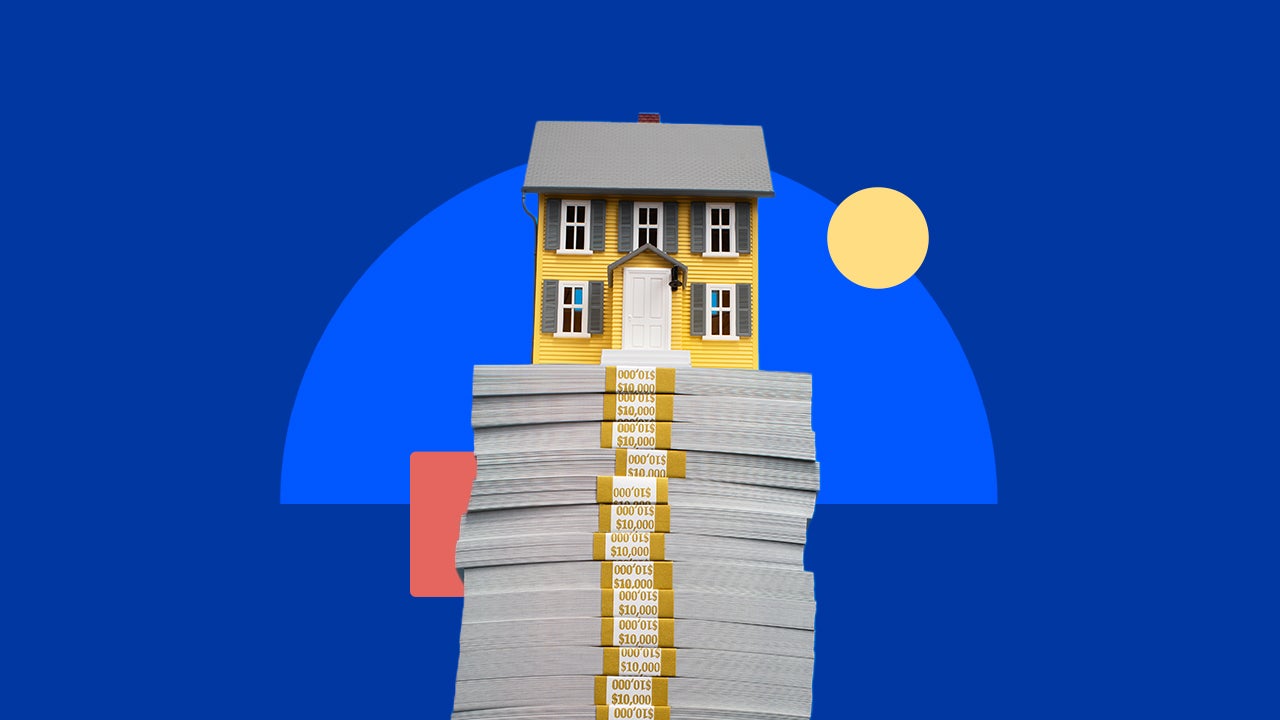Best mortgage lenders in Texas in 2025

For Texans looking to buy a home, now might be a good time to start your search. According to Redfin, the median price of a single-family home in the Lone Star State is $340,500, down 2.6% from a year earlier. At the same time, the number of homes available increased by 4.8%, signaling easing competition and more options available for buyers.
To help you navigate today’s market, we took a close look at lenders to help you find the best mortgage lenders in Texas. Whether you’re looking for Dallas mortgage companies, mortgage companies in Houston or loans anywhere else in the state, we’ve got you covered.
Best mortgage lenders in Texas
| Lender | Credit requirements | Down payment minimum | Bankrate Score |
|---|---|---|---|
| Chase Home Lending | 620 for conventional loans, 680 for jumbo loans, 640 for FHA loans, 640 for VA loans | 3% for conventional loans, 3.5% for FHA loans, none for VA loans | 4.9 |
| Tomo Mortgage | 580 for conventional loans | 3% for conventional loans, 3.5% for FHA loans, none for VA loans | 4.9 |
| Veterans United Home Loans | 620 for conventional and VA loans | 3% for conventional loans, 3.5% for FHA loans, none for VA and USDA loans | 4.8 |
Chase Home Lending
-
- Availability: All U.S. states
- Loans offered: Conventional, jumbo, FHA, VA, refinancing
- Credit requirements: 620 for conventional loans, 680 for jumbo loans, 640 for FHA loans, 640 for VA loans
- Down payment minimum: 3% for conventional loans, 3.5% for FHA loans, none for VA loans
- Where to find: Branch location and online

Tomo Mortgage
-
- Availability: 34 states, including Texas, and Washington, D.C.
- Loans offered: Conventional, jumbo, FHA, VA
- Credit requirements: 580 for conventional loans
- Down payment minimum: 3% for conventional loans, 3.5% for FHA loans, none for VA loans
- Where to find: Online

Veterans United Home Loans
-
- Availability: All U.S. states
- Loans offered: Conventional, jumbo, FHA, VA, USDA, refinancing
- Credit requirements: 620 for conventional and VA loans
- Down payment minimum: 3% for conventional loans, 3.5% for FHA loans, none for VA and USDA loans
- Where to find: Branch locations (including three in Texas) and online
How to find the best mortgage lender in Texas
While the best mortgage lender ultimately depends on individual circumstances and what feels “right” to you, it’s helpful to narrow down your options. Here are some tips:
- Set your priorities. Do you want to talk to a loan officer in person? Do you need a faster closing? Want to apply for and track your mortgage status through an app? Consider these and other questions as you come up with your short list of lenders to find the best mortgage in Texas for your situation.
- Get prequalified or preapproved. If you haven’t determined a homebuying budget, get prequalified for a mortgage first. This can help you understand how much a lender might allow you to borrow based on some preliminary financial information. If you’re ready to shop for homes, skip the prequalification and ask for a preapproval, which involves a credit check.
- Ask about first-time buyer and down payment assistance. Many Texas mortgage lenders work with the state’s housing finance agency to connect eligible borrowers with more affordable mortgages and down payment help. Some programs are available to both first-time and repeat buyers, too. Compare what different lenders offer and how that might impact your budget.
Texas conforming loan limits
Depending on the type of loan you use to purchase your home, it might be subject to conforming loan limits:
- Conventional loan: $832,750 in all Texas counties in 2026
- FHA loan: $541,287 in most counties in 2026
Check out Bankrate’s county-by-county listing of conforming loan limits in Texas to see what applies to you.
Texas first-time homebuyer programs
If you’re a first-time homebuyer in Texas, you may qualify for assistance through the Texas Department of Housing and Community Affairs (TDHCA). Programs such as My First Texas Home offer low mortgage rates and can provide closing cost and down payment assistance of up to about 5% of the loan amount.
Eligibility for these programs typically depends on factors like your credit score, income and purchase price limits, and you’ll usually need to work with a TDHCA-approved lender to access the benefits.
Don’t limit your search to the state level, either — many cities and counties in Texas have their own assistance programs. For example, the City of El Paso’s First-Time Homebuyer Program can provide up to $45,000 in down payment and closing cost aid for eligible buyers in priority areas, and up to $25,000 for buyers elsewhere within the city.
-
To determine the best mortgage lenders in Texas, Bankrate periodically evaluates more than 75 lenders for factors relating to affordability, availability and borrower experience, assigning each a Bankrate Score out of five stars. The best Texas mortgage lenders generally have a Bankrate Score of 4.9 stars or higher. Learn more about our methodology.
Why we ask for feedback Your feedback helps us improve our content and services. It takes less than a minute to complete.
Your responses are anonymous and will only be used for improving our website.
You may also like

How to do a balance transfer with Citi

Where can I get a short-term business loan?






